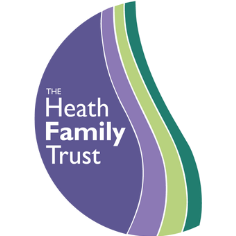Cultural Capital
Cultural Capital at Halsnead Primary School
What is Cultural Capital?
Cultural capital is the accumulation of knowledge, behaviours, and skills that a child can draw upon and which demonstrates their cultural awareness, knowledge and competence; it is one of the key ingredients a child will draw upon to be successful in society, their career and the world of work.
Cultural capital promotes social mobility and success.
Cultural capital gives a child power. It helps them achieve goals, become successful, and rise up the social ladder without necessarily having wealth or financial capital.
Cultural capital is having assets that give children the desire to aspire and achieve social mobility whatever their starting point.
Policy Rationale
At Halsnead Primary School, we recognise that for children to aspire and be successful academically and in the wider areas of their lives, they need to be given rich and sustained opportunities to develop their cultural capital.
Our character curriculum is designed to give children a wide range of experiences where they can have the opportunity to apply their growing knowledge of value behaviours in a range of contexts.
Our cultural capital overview maps out weekly value behaviours, as well as knowledge of significant individuals and their achievements. Children focus on local, UK and World impact of these significant people. Through the character curriculum, children are given the opportunity to take part in projects to have their own impact on a local, UK and global level.
The school recognises that there are six key areas of development that are interrelated and cumulatively contribute to the sum of a child’s cultural capital:
- Personal Development
- Social Development, including political and current affairs awareness
- Physical Development
- Spiritual Development
- Moral Development
- Cultural development
Summary of the key areas of coverage for each area of Cultural Capital Development:
Personal development
- Citizenship, Personal, Social and Health Education provision;
- The school’s wider pastoral framework;
- Growth mindset support – resilience development strategies;
- Transition support;
- Work to develop confidence e.g. role play, supporting peers;
- Activities focused on building self-esteem;
- Mental Health & well-being provision.
Social Development
- Personal, Social and Health Education provision;
- Volunteering and charitable work – eg. raising funds for NSPCC and other charities;
- Pupil Voice – subject leadership pupil teams, pupil voice during subject impact time
- Pastoral support from all staff
- Mentor systems – every Year 6 child has an adult mentor, every Year 6 child mentors a younger child
- Reading buddies
- Maths champions
- Sport leaders
Physical Development
- The Physical Education curriculum;
- Healthy Eating policies and catering provision;
- Anti-bullying and safeguarding policies and strategies;
- The Health Education dimension of the PSHE programme, including strands on drugs, smoking and alcohol;
- The extra-curricular clubs related to sports and well-being;
- The celebration of sporting achievement including personal fitness and competitive sport;
- Activity-based residential visit for Year 5
- Design and Technology units related to food preparation and nutrition;
- Wellbeing part of PE curriculum
Spiritual Development
- The Religious Education Curriculum;
- Our collective acts of reflection;
- Support for the expression of individual faiths;
- Inter-faith and faith-specific activities and speakers
- Visits to religious buildings and centres;
Moral Development
- The Religious Education Curriculum;
- The PSHE curriculum
- The school’s Behaviour policy;
- Contributions to local, national and international charitable projects.
- Character curriculum projects
Cultural Development
- Citizenship education through PSHE;
- Arts education including Music and Drama;
- Access to the languages and cultures of other countries through the Geography and MFL curriculum;
- Promotion of racial equality and community cohesion
Each curriculum area makes its own contribution to children’s cultural capital development and supports SMSC across the school.
Please see our cultural capital overview below.


